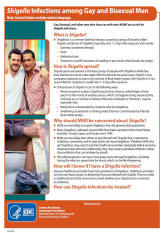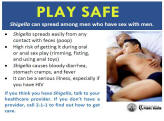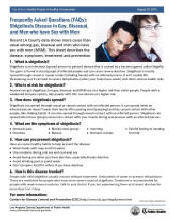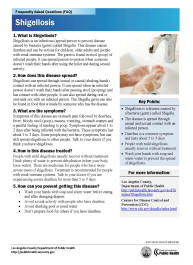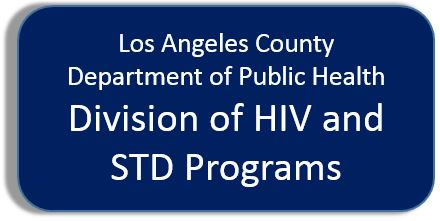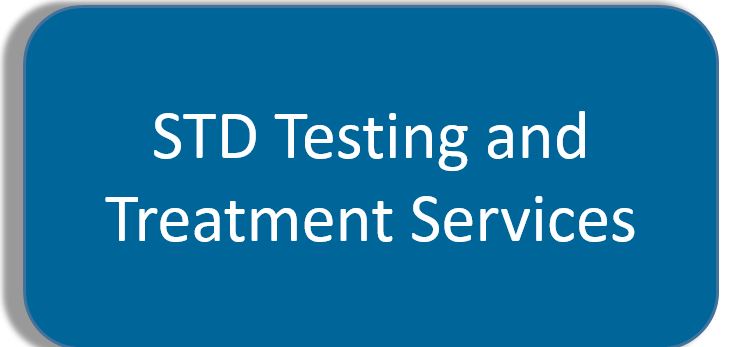Multi-drug resistant SHIGELLA infections among men
who have sex with men (MSM)
LA County has experienced an increase in cases of multi-drug resistant
Shigella among MSM. MSM are at increased risk for this disease,
and should be aware of the outbreak and that
Shigella can be a severe illness, particularly in those with reduced immunity.
In 2018, the CDC released a health alert regarding the increase in multi-drug resistant
Shigella outlining clinical guidance available
HERE.
- To minimize risk of infection, strategies include avoiding oral-anal contact, not engaging in sexual activity with anyone with a fever, diarrhea or other symptoms, and ensuring hands and toys are all washed with soap and water between use. People with
Shigella infection should not prepare food for
others while sick.
- MSM with fever and diarrhea should see their healthcare provider and a stool culture should be done to identify whether the cause is
Shigella. Abstaining from sex for at least 2
weeks after infection is important to further reduce
transmission (and then maintaining safe sex practices
when one resumes sexual relations). People who work in
healthcare, food service, or childcare, might be kept
from work until they recover.
For Clinicians:
- Obtain a stool culture from MSM who present with
fever and diarrhea.
- Order antimicrobial susceptibility testing (AST) when ordering stool culture for Shigella and request ciprofloxacin AST that includes lowest dilutions available (dilutions of 0.12 μg/mL or lower are ideal but not always available). Await AST results before treating.
- If antimicrobial treatment is warranted based on severe or prolonged illness, hospitalization, underlying risk factors such as immune-compromising conditions including HIV/AIDS or treatment with immunosuppressive drugs, clinicians should prescribe treatment on best data available and upon receipt of the antimicrobial susceptibility results,
and change therapy if necessary.
- If you routinely order PCR tests, please ensure it is in addition to culture. PCR does not replace culture as an isolate or specimen is required to be sent to the public health lab
per the 2016 update to the CA CCR Title 17 Reportable
Disease Guidance:
- If the method of AST used reports out minimum inhibitory concentration (MIC), avoid prescribing fluoroquinolones for ciprofloxacin MICs in the 0.12–1.0 μg/mL range.
- Obtain follow-up stool cultures and AST in shigellosis patients who have continued or worsening symptoms despite antibiotic therapy.
- Tailor risk reduction and prevention messaging to MSM.
- Report all cases and AST results to the
Los Angeles County Department of Public Health (LAC DPH).
Reporting for Clinically
Suspect Cases:
Los Angeles County
suspect cases are reportable within 1 working day from
identification by electronic transmission (including FAX at
888-397-3778), telephone (888-397-3993) or mail by completing a
confidential morbidity report.
For Clinicians:

